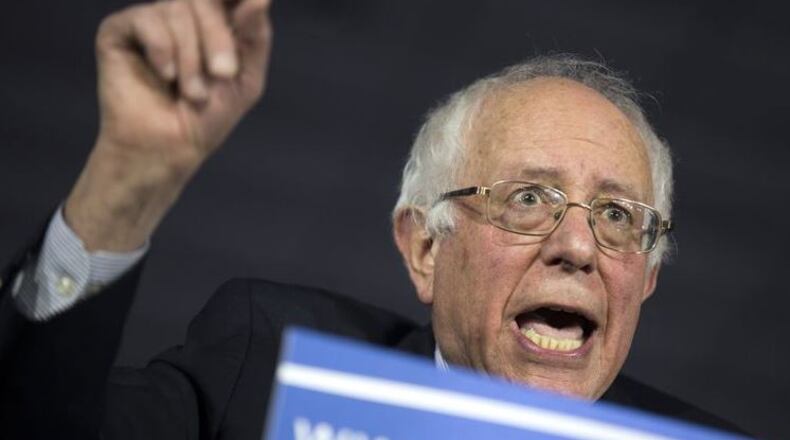Welcome back. As is my custom when I take time off , I paid very little attention to the news while I was away. In catching up on what I missed, I've been struck by the tone bordering on desperation coming from both of our supposed presidential front-runners.
Since March 15, when Donald Trump and Hillary Clinton appeared to have tightened their grips on their respective nominations, voters in GOP and Democratic contests alike have gone in decidedly different directions. Trump has lost four of five to Ted Cruz, watching his delegate lead shrink by more than 50 while remaining about 500 delegates away from clinching. In the same span, Clinton has lost seven of eight states to Bernie Sanders. Suddenly, New York, the home state of both leaders, looks like a must-win for each of them if they're to rein in a campaign narrative that's getting away from them.
And their inability to close the deal seems to be getting to them. Trump, who had been warning of "riots" and "bad things" should the GOP change the convention rules to deny him the nomination, is now saying he should be the winner even if he doesn't have a majority of delegates -- rules be damned. It's not the kind of thing a candidate confident of winning outright says. It's the kind of thing said by a candidate whose campaign organization is so disorganized that its chief "get out the vote" proponent forgot to, you know, register to vote. The fact John Kasich can still rationalize staying in the race -- even though he's still half a million votes and almost 30 delegates behind Marco Rubio, who dropped out five states ago -- shows just how little regard there is for Trump as a standard bearer.
Clinton, meanwhile, not only hasn't been able to pivot fully to the general election; she's having to resort to questioning Sanders' Democratic bona fides in recent interviews. A recent poll by The Atlantic shows Clinton and Sanders in a virtual tie -- including among all Democratic women -- just when she thought she would be able to lift her gaze toward the summer and fall. It is still unlikely that Sanders can catch her, but only because she has amassed such a lead among the party's unbound "superdelegates," which account for almost two-thirds of her advantage . Her talk about Sanders' party loyalty sounds not only like an attempt to regain momentum in the race, but her way of warning those unbound superdelegates not to abandon her should he keep winning states.
The difficulty the front-runners are having in finishing off their rivals is foremost a sign of just how deeply flawed and unpopular they are. In that Atlantic poll , majorities of Cruz supporters and Sanders backers had unfavorable views of Trump and Clinton, respectively. Considering that even at this point Trump and Clinton are both below the 50-percent mark, that's a sizable segment of each party's base that doesn't approve of its leading candidate. I can't recall any past primary season where, this late in the game, both parties faced this problem to this extent.
It's another reason to believe our political duopoly is long overdue for a realignment after the existing coalitions have spent so long fighting between the 45-yard-lines. But I don't think the person(s) who can bring about that realignment are in this race. Sanders' pushing the Democratic Party in a more socialist direction, or Trump's making the GOP more white and nativist, aren't the kind of new directions that would bring about a long-term shift in what -- and who -- the parties represent. More likely, they only signal that there would be an appetite in the near future for someone else to step in, on one or both sides, and try something very different.
About the Author
The Latest
Featured



